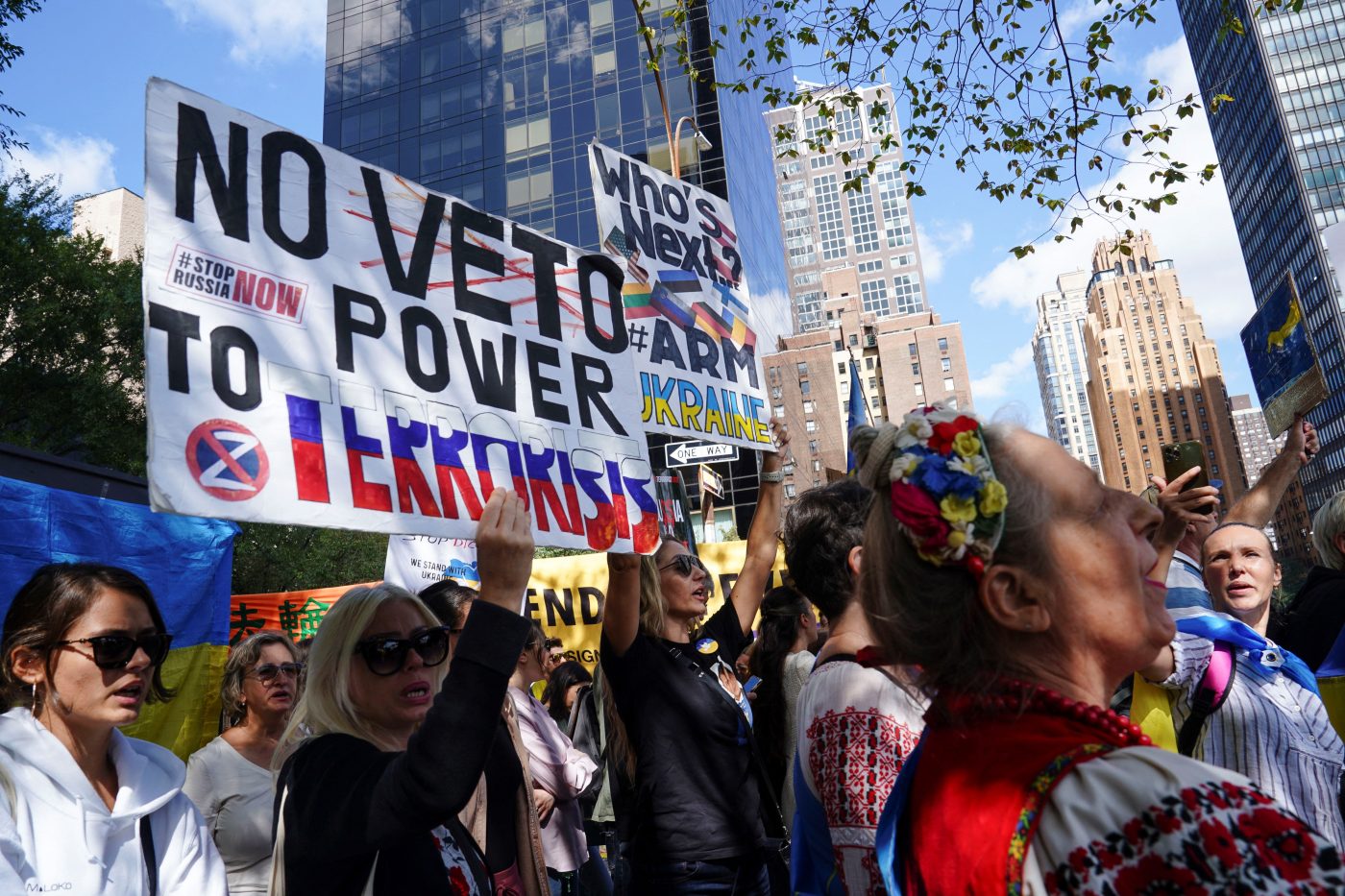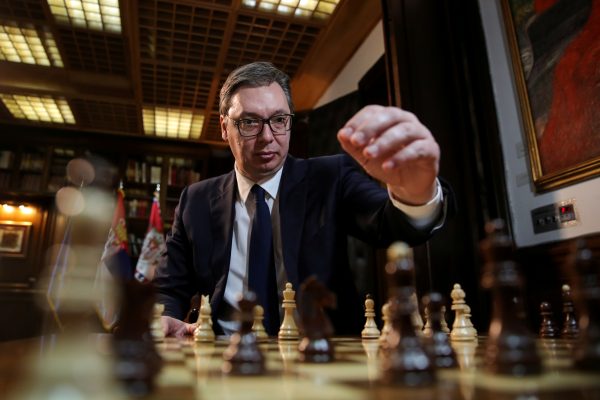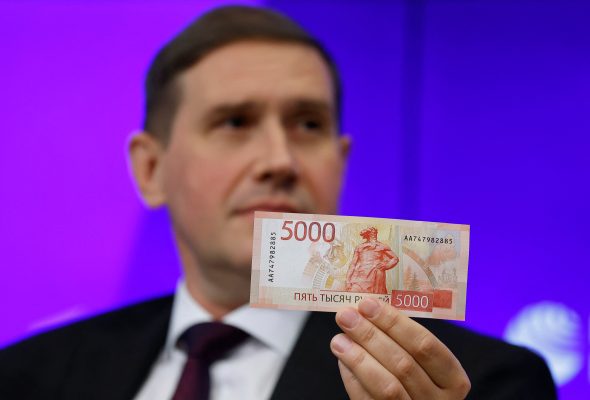As always with indirect statements, such as leaks to the media, these must be taken with caution. All too often, the enemy may be seeking to undermine the morale of the opposing party.
But certain trends are confirmed by diplomats this author has spoken to in confidence. President Zelenskyy openly referred to this in his September 19 speech to the UN General Assembly, when he said: “I am aware of . . . attempts to make some shady dealings behind the scenes. Evil cannot be trusted. Ask Prigozhin if one bets on Putin’s promises.”
The depressing realities are anyway clear: military support for Kyiv remains far below what is possible and necessary; the disastrous communiqué of the latest G20 summit, endorsed by the sherpas of Western heads of state and government, failed to condemn Russia. Meanwhile, there is widespread criticism about the supposed slowness of the Ukrainian counter-offensive, even though its speed depends first and foremost on underwhelming levels of Western support.
Sometimes, this talk of peace is surrounded by caution on the part of Ukraine’s sincere allies. Some government officials declare that the time is not ripe for negotiations and that, in any case, the Kremlin does not want them. Yet, indirectly, such utterances acknowledge that the theoretical possibility is being considered.
Ukraine has set out its position and it is formidable. President Zelenskyy’s 10-point peace plan is perfect since it can only be implemented if Russia is totally defeated. The Ukrainian plan is not a negotiating plan, indeed, Ukrainian leaders have rightly made it clear that they cannot talk to the Russian regime as long as Putin is in power.
Western leaders must adopt this position too. There can be no peace with Russia, just as there could have been no peace with Nazi Germany and Imperial Japan in 1945. They must also express this unless they want to facilitate the Kremlin’s devious work, which also involves a fake discourse of peace.
First of all, there can be no pax russica. This is what would result from a surrender to the self-described peace lobby, a disparate grouping that never specifies just how many Ukrainian concessions would be possible and acceptable.
Any move in this direction would contravene both international law and the allies’ commitments since the all-out war began on February 24, 2022. Any territorial concession, however limited, would still be a half-victory for the Russian regime and would endorse the violation of international law by force. It would make a mockery of unanimous Western declarations on the principle of Ukraine’s territorial integrity.
Nor can the allies negotiate an amnesty for Russia’s leaders for their crimes of aggression, genocide, offenses against humanity, and war, for it is these four crimes of which they are guilty. International law cannot be mediated. Nor can we negotiate the return of deported Ukrainian children, a crime of genocide under the 1948 Convention. Nor can we see Western leaders explaining to their public that they do not want to make Russia pay for the massive destruction it has caused, and turn instead to their own taxpayers.
Secondly, any territorial concession would endorse Russia’s brutal and bloody occupation of torture, summary executions, and child abduction. This has been extensively documented in the 17% or so of Ukraine that they hold, which includes lands seized since 2014.
Finally, any form of negotiated peace would be a harbinger of future wars. Moscow could reconstitute its forces and, even with less-than-expected conquests or a return to the pre-February 24, 2022 situation, it could “sell” its people a success. It bears repeating: anything short of a radical defeat for Putin would still be a strong gain.
The consequences of such an agreement outside Europe are clear. Not only would it send the worst possible signal to China, it would also sow unrest among our Asian allies. As for uncertain nations or those on a tipping point, such as many developing countries, it would offer no incentive to turn away from the Kremlin. They could say to themselves that while Russia is visibly weaker it is still capable of winning ideological battles, while the West stands out for its doctrinal inconstancy.
For these states, the only ideology is power. And when they consider the future power of nations, it is far from certain that they bet on the US and its allies.
Finally, any form of agreement would inevitably require (in words or in reality) the end of the determination to hold Russia’s murderers, rapists and torturers in court. These crimes have been unparalleled in Europe since World War II, exceeding even the horrors of the Yugoslav Wars of Succession in the 1990s. It would establish a precedent — that crimes against civilians amounting to a war of national extermination are simply one item to be negotiated away by two parties. This would mark an enormous victory for Putin and other would-be war criminals. It would erase Nuremberg.
Western leaders have failed for two years to grasp what is happening, and what is at stake, because they have looked away from the crime. Such acceptance begins the Putinization of minds.
They shy away because once the scale of Putin’s crimes is understood, the corollary is that Putin’s Russia must disappear. In other words, it cannot be part of any security arrangement or architecture. It must be driven out of all the territories where it still holds sway, including those beyond Ukraine.
While some democratic leaders still think in terms of stability by invoking Moscow and, for this reason, fear a black hole in the center of Europe, we must re-explain that Putin is not the “least worst” solution, but the worst. Even if Russia were to break up and be — an unlikely hypothesis by the way — this would offer greater security than the current, rampaging Russia.
For this is the problem: those who talk of an agreement with Putin, believe that Russia is “too big to fall”, fear above all a “confrontation between NATO and Russia” and believe that everything ends in negotiations (a historical falsehood, by the way) are under the spell of the Russian narrative, however well studied.
It’s time they learned to think with their own minds, not those of the enemy.
Nicolas Tenzer is a Non-resident Senior Fellow at the Center for European Policy Analysis (CEPA) and Chairman of the Center for Studies and Research on Political Decision (CERAP). He is currently a guest professor at the Paris School of International Affairs (PSIA, Sciences-Po), and a blogger on Tenzer Strategics, a blog on international security and foreign policy issues. He is a former director of the online journal Desk Russie.
Europe’s Edge is CEPA’s online journal covering critical topics on the foreign policy docket across Europe and North America. All opinions are those of the author and do not necessarily represent the position or views of the institutions they represent or the Center for European Policy Analysis.





